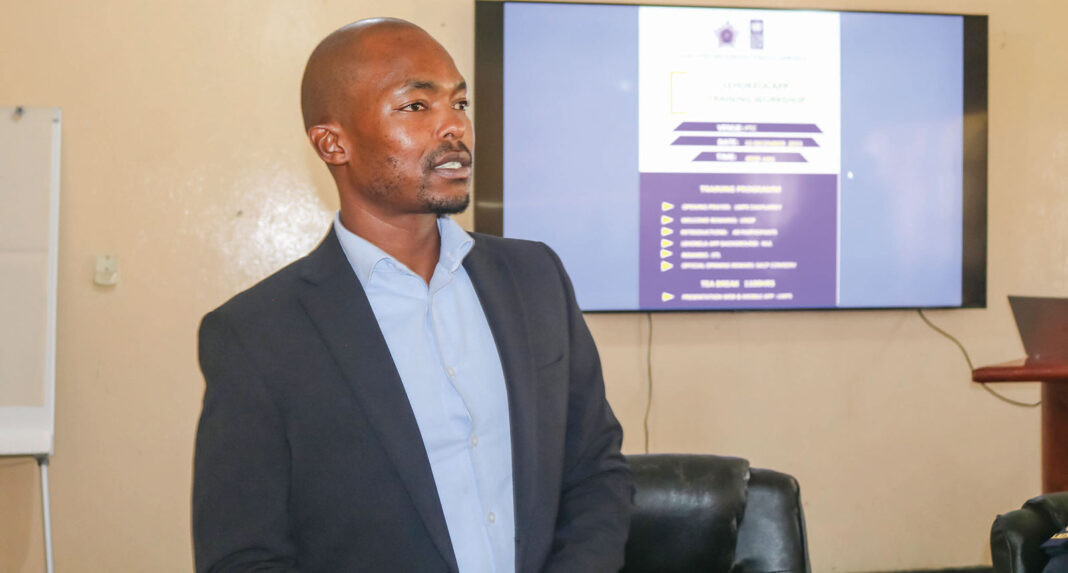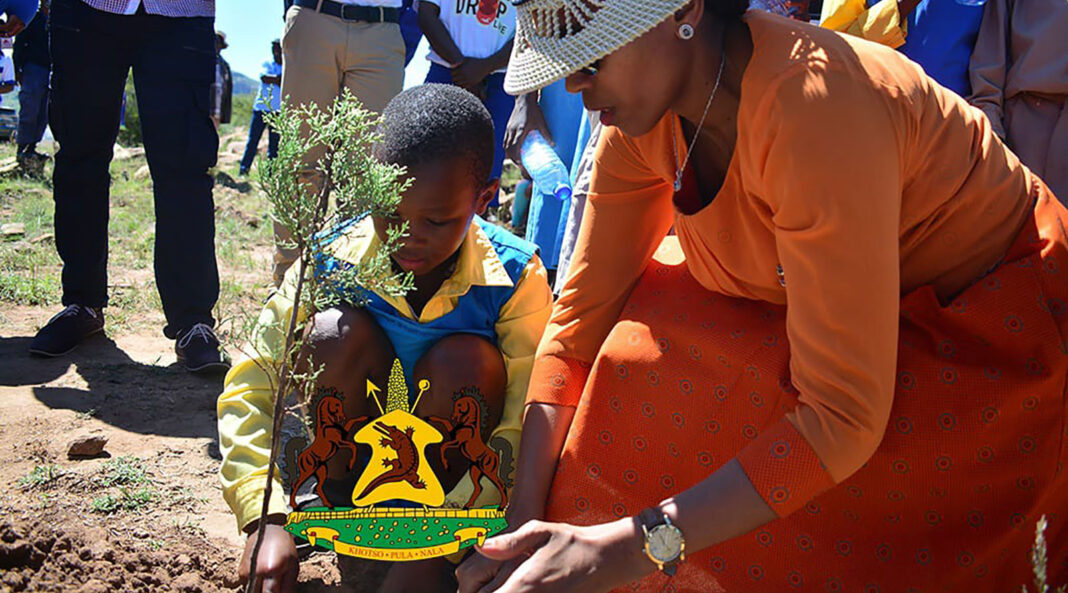The United Nations Development Programme (UNDP) has launched a new initiative in partnership with the ministry of information, communications, science, technology and innovation to enhance the accessibility of public services.
In an interview with theReporter’s ‘Mantšali Phakoana, UNDP Lesotho head of experimentation, Teboho Khoali, shares insights into how the new project, dubbed E-Service Outlet Model, will revolutionise service delivery in the country.
Briefly tell us about the E-Service Outlets Model and how it will be tailored to meet Lesotho’s unique needs and challenges?
UNDP and the ministry of information, communications, science, technology, and innovation are implementing a digital inclusion initiative named E-Service Outlet Model. The model aims to deliver all online services to digitally marginalised groups such as the elderly, people living with disability, those without digital skills or gadgets, those residing in rural and hard to reach areas, and those without sufficient money for data vouchers to access online services.
Some of the services offered online by government ministries, academia, private sector, etc, will be delivered through this model. It is influenced by the 90 percent of data network coverage in the country where government is extending existing infrastructure and connecting hard to reach areas with base tower stations offering at least 3G mobile network coverage.
The model fosters partnerships with the private sector to leverage on their expertise and resources in enhancing delivery of government services. Micro, Small, and Medium Enterprises (MSMEs) such as mobile money agents, internet and printing shops which have required skills, capacity and technology infrastructure (i.e., internet connection, computers, printers, and scanners) have been identified and enrolled for training on e-services platforms delivering services online to support digitally marginalised citizens.
What is the timeline for implementing the E-Service Outlets Model, and how will progress be measured?
The e-Service Outlets Model was designed and implemented in July 2023, enrolling a first cohort of 38 MSMEs as an experiment. With new insights emanating from the model performance, there is need to enrol the second cohort of MSMEs to expand scope of inclusion. Based on government plans to digitise and develop about 1000 e-services in the coming years, this will determine maturity not just the endurance determinants for the model, but also scalability and diversity of service offering modalities found within the e-Services Outlet Model.
The model was launched on May 22, 2024 after eight months of operation, and UNDP, the ministry of information, communications, science, technology and innovation in collaboration with e-services providers and e-Service Outlets have developed a monitoring and evaluation framework to track progress while also identifying challenges requiring attention to concretise model concept. The call to enrol more MSMEs will be issued before end of September 2024, with more focus on identifying MSMEs anticipated to cover rural communities and areas that are furthest to services provision points.
How will the government ensure that the E-Services Outlets Model is accessible to all citizens including in both rural and remote areas, and also ensuring that it is secure and protects citizens’ data and privacy?
The model was established as an experiment in 2023 enrolling 38 MSMEs, now called outlets. The outlets are found countrywide, but the majority are currently located in urban and peri-urban areas where there is more digital activity for business. The plan is to enrol more MSMEs in 2024 in the second cohort to expand model visibility and citizens inclusion.
How can e-services be designed to promote social inclusion and address the needs of marginalized communities?
The model has been designed to address mainly issues of digital exclusion. Previously, all services were centralised in Maseru, but with the 38 outlets established countrywide, people in the country’s 10 districts can now access services closer to them. These are currently distributed in all major towns in the 10 districts. However, there are a few located outside major district towns offering services to rural communities. These include outlets in Semonkong, Maseru (2), Pela-Tsoeu, Leribe (1), Morija, Maseru (1), Motsekuoa, Mafeteng (1), and in Mount Moorosi in Quthing (1).
While business activity and energy are main challenges hindering establishment of outlets in rural communities, alternative support for possible business development sensitisation and engagement of other digital inclusion modalities are currently under consideration. However, the first step in cutting travel cost and time from districts to access services centrally in Maseru has been accomplished as some of the services can now be acquired within the districts.
Moreover, one important aspect which the model addresses is cost of access to service. The model helps to harmonise the cost of service due to physical distance. Eg, if an individual resides in Tlhanyaku, Mokhotlong, is currently forced to access some of the services centrally in Mokhotlong town, Hlotse, or Maseru because of digital exclusion challenges highlighted in Q1 above. The model will now provide an advantage to the Tlhanyaku community if at least one qualifying MSME in that area can be identified and enrolled in the new cohort to provide services locally. This saves citizens in Tlhanyaku, not only their time to travel for services, but also money to travel.
What measures will be put in place to address potential digital divide issues and ensure that all citizens can benefit from E-Services?
UNDP is a development partner for Lesotho and under the development implementation frameworks, UNDP is guided by leaving-no-one-behind policy infusing human rights-based approach and people-centred design in all the work the organisation undertakes. These frameworks provide measures assisting in elimination of exclusion elements including those addressing digital divide issues.
E-Service Outlets Model is one of the components within a broader “Inclusive Digitalization for Lesotho’s Service Delivery Transformation Project” that aims to bolster Lesotho’s capacity for governance to advance its service delivery transformation through digitalisation. Holistically, UNDP is implementing the project with main objective of bridging the digital divide in Lesotho by improving measures on access and inclusion to digital spaces such as the established e-services outlet model.
Within this project, UNDP and the ministry of information, communications, science, technology and innovation plan to establish one-stop-shop centres in the country, at least one per district as a start, targeting mostly rural communities. These centres will be furnished and plugged with internet and equipment and will be open to all citizens for at minimal or subsidised fees.
The centres will have self-help workstations where individuals with technical know-how can interface with e-services with limited personal support. These measures will help in reducing digital access costs, and gradually enhance digital literacy, particularly among women and youth segments which have been identified as the most consumers of digital goods. Developing new digital skills will transform the new generations to become digital goods producers solving local challenges.
This does not only have potential to counter currently observable digital divide but will improve deteriorating economic situation layered with poverty and high unemployment rate in the country. Other avenues will be explored to magnify inclusion impact, including establishment of partnerships with private sector to avail monetary or technical resources through corporate social responsibility to further bridge digital divide in the country.
What kind of partnerships or collaborations are being established between the government and UNDP to support the successful implementation of the E-Services Outlets Model?
UNDP has partnered with the ministry of information, communications, science, technology and innovation as the lead implementing partner. UNDP has also partnered with initial services providers who have currently deployed their e-services platforms within the model and trained outlets on the use of their e-services. These first batch of partners include government ministries and government subsidiaries including the ministry of trade, industries and business development, Examinations Council of Lesotho, and Revenue Services Lesotho.
UNDP further partnered with academic institutions including Centre of Accounting Studies, Botho University, National University of Lesotho, Limkokwing University and Lesotho College of Education who enrolled their tertiary enrolment systems within the model. Lastly, UNDP partnered with private sector entities including Econet Telcom Lesotho to provide internet services for the model, and PayLesotho to provide bundled payments modalities for different services acquired within e-Services Outlet Model.
With the planned second cohort, the scope of partnerships will be expanded with possibilities to deploy more e-services platforms from government and external entities including e-services offered by United Nations Agencies, the private sector, etc. UNDP will also explore other establishment of other partnerships to provide technical support and advocacy to help popularise e-service outlets model for digital inclusion. Since the model is still at experimental stage, other relevant functionalities such as financial inclusion, skills development can be added to improve model’ value addition, relevance and sustainability.
What strategies can organisations use to ensure the security and privacy of user data in e-services?
All organisations not just government are obliged to ensure and observe safety, security and privacy of individuals utilising or engaging with organisations’ digital goods. This is a human right as stipulated within human rights legal frameworks, and therefore, it calls for all individuals and entities involved in digitalisation process to ensure that e-service platforms are secure from design to implementation.
Organisations must also ensure that service support personnel and consumers are trained and aware of privacy and cyber security issues to protect themselves, their assets, and others, hence all e-service outlets are also trained on elements of cyber security and data privacy.
How can service providers balance the need for service integration with concerns about data privacy and security? Fortunately, digital is the only way forging service integration, primarily for efficiency and effectiveness of processes and systems, but integration of systems also minimises unnecessary human interaction that can lead to human errors or encourage security threats perpetuated by people. Integration allocates focus on technology, ensuring that systems are secure at intersecting and data exchange points and there are digital security standards and already available algorithms offering this requirement.
How can regulatory bodies support the growth of e-services while ensuring that user rights are protected?
Regulatory bodies develop and oversee policy implementation. Their take is to ensure that policies developed are implementable within Lesotho’s landscape, and such policies really solves peoples’ challenges, hence human cantered approach to policy development is highly recommended for regulatory bodies.
What are some of the most significant challenges in implementing the E-Service Outlets Model in resource-limited settings?
Some of the key insights observed not as challenges but learning patterns are the issue of capacity, both infrastructure and knowledge for outlets. However, the model has established a live platform for knowledge exchange among the outlets and service providers where issues of capacity are capture well in time, and solution are derived and collaboratively implemented. Low data network strength is also another issue, particularly for currently enrolled outlets in rural communities such as Semonkong, Pela-Tšoeu and Mount Moorosi.
This is mainly observed on e-service platforms that require transmission of heavy data elements such as attaching heavy format files such as pictures, videos, or even large pdf documents. These insights also help mobile network operators through the ministry of information, communications, science, technology and innovation about their infrastructure capabilities in such areas and sensitise for possible need of network coverage improvement. There is also a need to develop a clear advocacy and awareness strategy for model publicity hence UNDP is currently collaborating with the e-Service Outlets and e-Services Providers to co-create the marketing strategy to push publicity and awareness needs.








